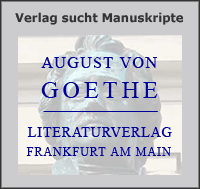Wissenschaften
The Countenance in the World. Thoughts on Identity in the twenty-first Century
This work addresses the question of whether and why the modern human being can admit and accept the existence of a divine entity, and looks at how identity originates. As the scientistically shaped modern individual, who feels disconnected from the Church and religion, finds hypotheses and knowledge based on empirical experience to be most convincing, a perusal of cultural history should serve to illustrate how identity owes its origins to the essence of the personal. In order to escape the loneliness and vulnerability associated with the ascendant spirit of humanistic enlightenment, the entity of the person, in turn, must perforce refer back to something else, that is, must accept an absolute justification that lies beyond his or her own intellectual horizon, and with this, the existence of a divine power.
Numerous instances may be cited within the history of language, philosophy, art and social organisation (political theory) that refer not to an impersonal supreme concept – no universe, no abstraction of the mind – but rather, time and again, to the human countenance. This is manifest within Greek, Latin, German, English and Chinese etymology, as well as central currents within philosophy and theology, and even within the humanistic notion of the self-creating individual, upon which the modern world is founded.
This elucidates the fact that the face of the person does not illuminate itself, but rather something lying beyond it. It is the visor to something else, something that is personal in a special sense. This process of illumination was described by ancient thinkers as an incommunicable substance that refers the person back to something (religo). It offers an explanation for basic human concerns such as love, friendship and trust, which would otherwise remain inexplicable.
These manifold illustrations, dispersed throughout the history of western culture, call upon us to recognise the personal, along with the answerability that defines its nature, and elicit a response which ultimately leads to responsibility. Thus the adoption of a religious belief does not draw upon a purely transcendental/metaphysical idea of a god, but rather the very nature of the personal. Here lies the opportunity for a modern identity that can be united with humanism and the fruits of the Enlightenment. And thus, in the 21st century too, responsive and responsible identity has a countenance in the world.
Philosophers, theologians, bishops and cardinals have already highly recommended the book which discusses a fundamental question of the time. The only disadvantage is the condensed matter and abstract delivery which challenges the reader.
J. v. Hirschsprung
08.09.2005
Das Buch:
Markus Hänsel-Hohenhausen: The Countenance in the World. Thoughts on Identity in the twenty-first Century. Withbound in german language. Vom Antlitz in der Welt. Gedanken zur Identität im 21. Jahrhundert
![CMS_IMGTITLE[1]](http://www.literaturmarkt.info/cms/upload/ixlibris/images/cover/haensel_hohenhausen_markus02.jpg)
Frankfurt a.M., London, New York: Frankfurter Taschenbuchverlag 2005
42 S.
ISBN: 3-937909-54-0
Diesen Titel
![CMS_IMGTITLE[2]](http://www.literaturmarkt.info/cms/upload/ixlibris/images/cover/noamazon.gif)



